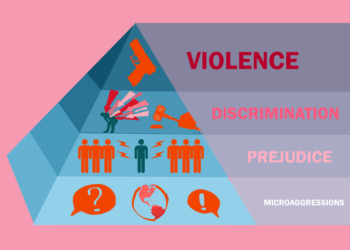Rather than posts from either our regular bloggers or guests, this week The Scholarly Kitchen is stepping off the stage to instead spotlight research and researchers writing about systemic racism from around the globe and from multiple disciplinary perspectives. As the blog of the Society for Scholarly Publishing (SSP), the mission of The Scholarly Kitchen is to highlight information and insights from the dynamic world of scholarly communications: research and scholarship sits at the center. We have linked to open content or reproduced where licenses allow.

Next week we will post reflections and readings about our industry. Please also read last week’s statement from the SSP Board of Directors and Co-Chairs of the Diversity, Equity & Inclusion Committee, “Reaffirming our Commitment to Diversity, Equity, and Inclusion.”
Today we feature a special issue of The BMJ from February 2020 on racism and medicine. Twenty-eight investigation, editorial, feature, opinion, news, analysis, and career focus articles cover a wide range of clinical, professional, and organizational issues around race and medicine in the UK. An investigation by The BMJ found, for example, that “medical schools are failing to monitor racial harassment and abuse of ethnic minority students.”
We thank the editors for opening this full issue of The BMJ for two weeks so that readers can access all the articles, and particularly BMJ news editor Zosia Kmietowicz for her responsiveness to our request.
Co-editors of the special issue Victor Adebowale and Mala Rao began their introduction, “It’s Time to Act on Racism in the NHS” by noting that: “Ethnic minority doctors and patients still face too many injustices in the NHS. The BMJ’s special issue on racism in medicine maps some of them and asks how they might be overcome, from the fivefold higher maternal mortality among black women than among white women in the UK to the gap in performance between white and ethnic minority students and doctors and the increased likelihood of disciplinary procedures against ethnic minority doctors.”
We encourage our readers to explore this issue of the journal.
The Table of Content includes:
- It’s time to act on racism in the NHS
- Are medical schools turning a blind eye to racism?
- Racism in medicine: why equality matters to everyone
- Neglect of older ethnic minority people in UK research and policy
- Differential attainment in medical education and training
- Taking the difference out of attainment
- Can we trust AI not to further embed racial bias and prejudice?
- What lies beneath: getting under the skin of GMC referrals
- Ethnic disparities in maternal care
- Harnessing the outrage: it’s time the NHS tackled racial bias
- Dinesh Bhugra: Loving the sound of breaking glass
- Yvonne Coghill: cultural transformation through conversation
- We need to talk about racism
- Women from ethnic minorities face endemic structural racism when seeking and accessing healthcare
- The perils of researching racial discrimination
- Don’t call me Bibi—or anybody else, for that matter
- Partha Kar: Sadda haq, aithe rakh
- Rammya Mathew: Racism in medicine—migrant doctors aren’t here just to “fill a gap”
- Helen Salisbury: Responding to racism
- David Oliver: Racism in medicine—what ethnic minority doctors told me on Twitter
- Communities that prefer close blood marriages need more help to access genetic services
- Ethnic minority NHS staff need to lead on climate action
- Specialty training: ethnic minority doctors’ reduced chance of being appointed is “unacceptable”
- Tackling racism in medical schools: five minutes with . . . Gurdas Singh
- White doctors are still over-represented in top NHS jobs, study finds
- Birthing care without racism: five minutes with . . . Kimberly Seals Allers
- Transforming the health system for the UK’s multiethnic population
- Can patients use family members as non-professional interpreters in consultations?



